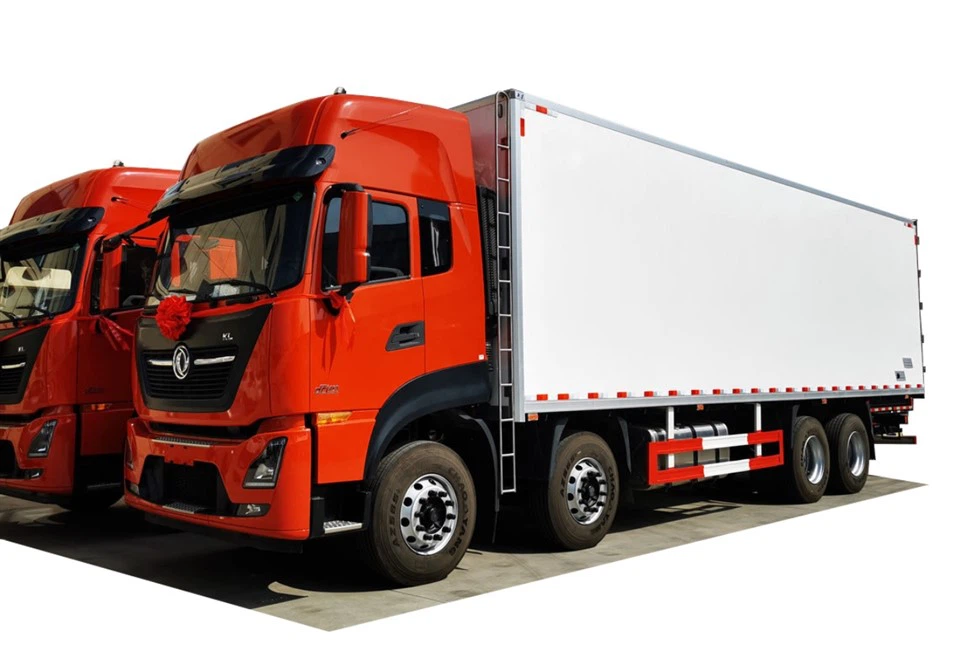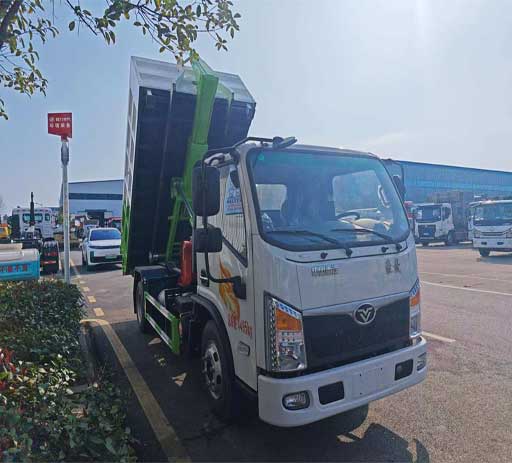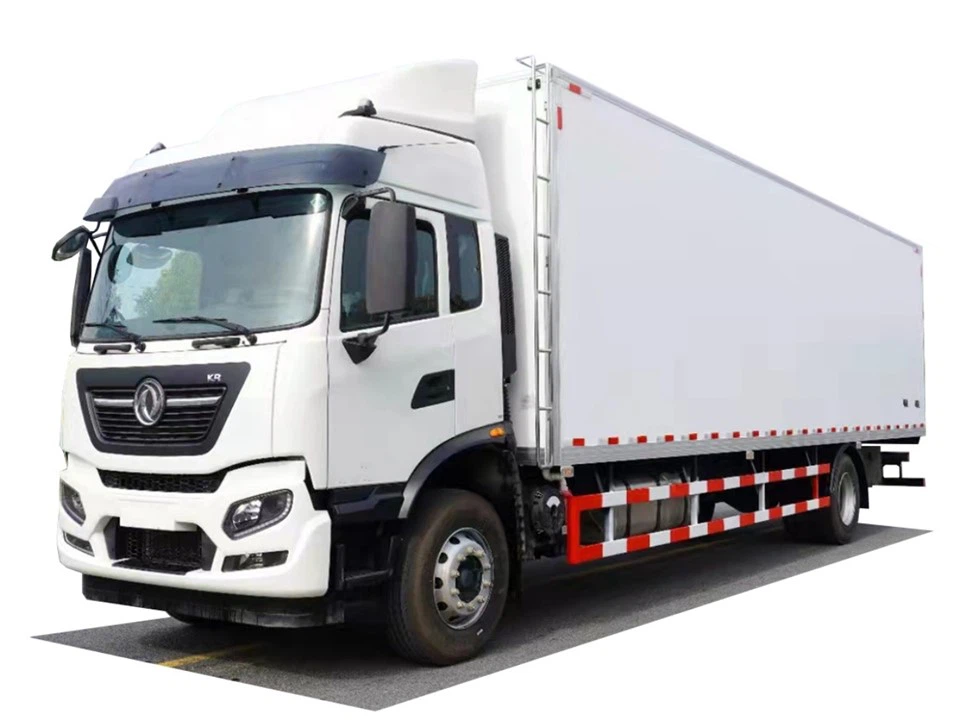Revolutionizing Transportation: The Rise of Electric Tractor Trailers

Introduction

Electric tractor trailers are transforming the logistics and transportation industry. As sustainability becomes more critical, these vehicles offer a promising alternative to traditional diesel-powered trucks. Electric tractor trailers are not only environmentally friendly but also cost-effective and efficient. This article delves into the details of electric tractor trailers, exploring their technology, benefits, challenges, and the future of the trucking industry.
What is an Electric Tractor Trailer?
An electric tractor trailer combines an electric-powered truck and its trailer, designed for transporting goods over long distances. Unlike conventional trucks powered by internal combustion engines, electric tractor trailers run on batteries or fuel cells, producing zero emissions. This section covers the components that make up an electric tractor trailer.
Components of Electric Tractor Trailers
- Electric Motors: These provide power to the vehicle, delivering instant torque and reducing energy loss during acceleration.
- Batteries: High-capacity lithium-ion batteries store energy to power the electric motors. Some models use innovative technology like solid-state batteries for improved energy density.
- Charging Infrastructure: Charging stations are essential for electric tractor trailers, utilizing fast-charging technology to minimize downtime.
- Regenerative Braking System: This system captures kinetic energy during braking and converts it back into electrical energy, extending the range of the vehicle.

Benefits of Electric Tractor Trailers
Electric tractor trailers present numerous advantages over their diesel counterparts. This section outlines some key benefits.
1. Environmental Impact
Electric tractor trailers emit zero tailpipe emissions, contributing to cleaner air and reduced greenhouse gas emissions. Their adoption is crucial for meeting global climate goals.
2. Operating Costs
Electric vehicles generally have lower operating costs. While the upfront cost may be higher, savings on fuel and maintenance can offset this over time. For instance, electricity is often cheaper than diesel, leading to significant savings on fuel costs.
3. Performance Efficiency
Electric tractor trailers can provide superior performance due to their instant torque. This leads to improved acceleration and hill-climbing capabilities, benefiting logistics operations.
4. Low Noise Pollution
Electric trucks operate much more quietly than diesel trucks, reducing noise pollution in urban settings and along routes where noise regulations may be a concern.
Current Market Trends
The market for electric tractor trailers is growing rapidly. This section takes a closer look at the trends influencing this market.
Investment in Technology
Major automotive manufacturers and startups are investing heavily in electric truck technology. Companies like Tesla, Nikola, and Rivian are at the forefront, pushing the boundaries of what electric trucking can achieve.
Government Regulations and Incentives
Governments worldwide are introducing regulations to promote electric vehicle adoption. Tax credits, rebates, and investment in charging infrastructure are encouraging logistics companies to transition to electric tractor trailers.
Corporate Sustainability Goals
Many corporations are implementing sustainability initiatives, which often include transitioning to electric fleets. This trend not only helps the environment but also improves corporate image.
Challenges Facing Electric Tractor Trailers
While electric tractor trailers hold great promise, they also face several challenges that need addressing.
1. Range Anxiety
Range anxiety is a significant concern for logistics companies. Most electric tractor trailers currently have a limited range compared to traditional trucks, potentially affecting long-haul operations.
2. Charging Infrastructure
The availability of reliable and fast charging stations is crucial for the widespread adoption of electric tractor trailers. Without sufficient charging infrastructure, the utility of electric trucks will be greatly diminished.
3. Initial Investment
The initial cost of electric tractor trailers can be higher than their diesel counterparts. Although operating costs are lower, the higher purchase price may deter some companies from making the switch.
Practical Examples of Electric Tractor Trailers in Use
Electric tractor trailers are already being implemented in various sectors. Below are some examples showcasing their practicality.
1. Tesla Semi
The Tesla Semi has gained significant attention for its impressive specifications, including a range of 300-500 miles on a single charge and the ability to accelerate from 0 to 60 mph in just 20 seconds with a full payload.
2. Freightliner eCascadia
Freightliner’s eCascadia is designed for urban and regional haulage, offering a range of up to 250 miles and the capability to recharge within two hours using DC fast charging.
3. Volvo VNR Electric
The Volvo VNR Electric is ideal for local distribution, providing up to 150 miles of range, making it perfect for short hauls, especially in urban environments.
Future Prospects for Electric Tractor Trailers
The future of electric tractor trailers looks promising, with ongoing advancements in technology and infrastructure. This section discusses potential developments that may shape the future of the industry.

Advancements in Battery Technology
Innovations in battery technology, such as solid-state batteries, may significantly extend the range and reduce charging time, making electric trucks more viable for long-haul routes.
Integration with Autonomous Technology
The combination of electric powertrains and autonomous driving technology could revolutionize logistics, leading to more efficient, cost-effective, and safer transportation solutions.
Expansion of Charging Networks
As electric tractor trailers become more popular, the expansion of charging infrastructure will likely keep pace, enabling more logistics companies to transition without hindrance.
Tips for Transitioning to Electric Tractor Trailers
For companies considering the switch to electric tractor trailers, the following tips can be highly beneficial.
1. Assess Your Routes
Evaluate your typical routes and determine if electric tractor trailers can meet your range requirements. Consider the availability of charging stations along these routes.
2. Calculate Total Cost of Ownership
When considering a switch, calculate the total cost of ownership, including purchase, maintenance, fuel savings, and potential incentives.
3. Stay Informed on Incentives
Research local and federal incentives that can help offset the cost of electric vehicles. This can significantly lower the financial barrier to entry.
4. Partner with Charging Infrastructure Providers
Build relationships with charging infrastructure providers to ensure your fleet has convenient access to charging stations.
Frequently Asked Questions (FAQ)
1. What is the range of electric tractor trailers?
The range varies by model, typically between 150 to 500 miles on a full charge, depending on the specific type of electric truck and its battery capacity.
2. How long does it take to charge an electric tractor trailer?
Charging times can vary based on the power source. Using fast DC charging can recharge an electric tractor trailer in 1-2 hours, while standard AC charging may take several hours.
3. Are electric tractor trailers suitable for long-haul transport?
While some electric tractor trailers are capable of long-haul transport, issues like range and charging infrastructure may need to be considered. Technology improvements are expected to further enhance long-haul viability.
4. What are the maintenance costs of electric tractor trailers?
Electric tractor trailers generally have lower maintenance costs compared to diesel trucks, as they have fewer moving parts and don’t require oil changes or exhaust system maintenance.
5. Are there any government incentives for purchasing electric tractor trailers?
Yes, various governments offer incentives such as tax credits, grants, and rebates for companies investing in electric vehicles, including tractor trailers.
6. How does the performance of electric tractor trailers compare to diesel trucks?
Electric tractor trailers often provide superior acceleration and torque, making them efficient for various driving conditions, despite having a different power delivery system compared to traditional diesel trucks.
